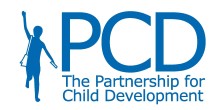 News
News  Global Hunger Event, 12 August - strengthening commitments to tackle child malnutrition
Global Hunger Event, 12 August - strengthening commitments to tackle child malnutrition
The Global Hunger Event on 12 August, the closing day of the 2012 Olympics, is hoped to challenge global leaders to step up efforts to improve nutrition and reduce stunting among the world’s poorest children between now and the next Olympics in 2016.
The event which will be attended by the Bill and Melinda Gates Foundation, WFP and Save the Children aims to strengthen global commitments made towards tackling malnutrition, bringing together new champions to support the movement.
Almost one in three of the world’s poorest children cannot reach their full potential due to malnutrition. As the Olympics draw to a close on Sunday, Prime Minister David Cameron and Vice President Michel Temer of Brazil will call on the world to take the action needed to transform the life chances of millions of children over the next four years.
A new global target to reduce the number of stunted children by 70 million by 2025 has been agreed by the decision making body of the World Health Organization, the World Health Assembly. It is therefore hoped the Global Hunger Event will ensure London 2012 also has a huge significance for millions of children around the world, improving their nutritional status and opportunities for them to fulfill their future potential.
The importance of nutrition
Reducing malnutrition is a cornerstone of poverty reduction. Malnutrition and specific micronutrient deficiencies contribute to infant, child and maternal morbidity; decreased learning capacity; lower productivity and higher mortality.
For approximately 170 million children today, their potential will already be limited by the time they are two years old. Stunting, which is the result of a prolonged poor diet or infection in early childhood, affects growth and physical ability. Stunted children may do less well at school and go on to earn less later in life.
Strengthening political will
Countries which have taken concerted action to reduced under-nutrition have shown remarkably fast rates of lessening the number of malnourished children. Among these countries are Brazil, Peru, Thailand and China.
Recently, the United Nations Secretary General set the challenge for a world free from stunting. The new target to reduce the number of stunted children by 40% by 2025 has been agreed by the World Health Assembly. The Scaling up Nutrition (SUN) Movement, which 28 countries have now taken part in, is developing the framework for monitoring progress against stunting targets. The G8 “New Alliance on Food and Nutrition Security” is committed to supporting SUN in the scale-up.
Article originally adapted from the Department for International Development.
Key Resources
Rethinking School Feeding, Social Safety Nets, Child Development, and the Education Sector
Monitoring and Evaluation of School-Based Health and Nutrition Programmes: A Participative Review



